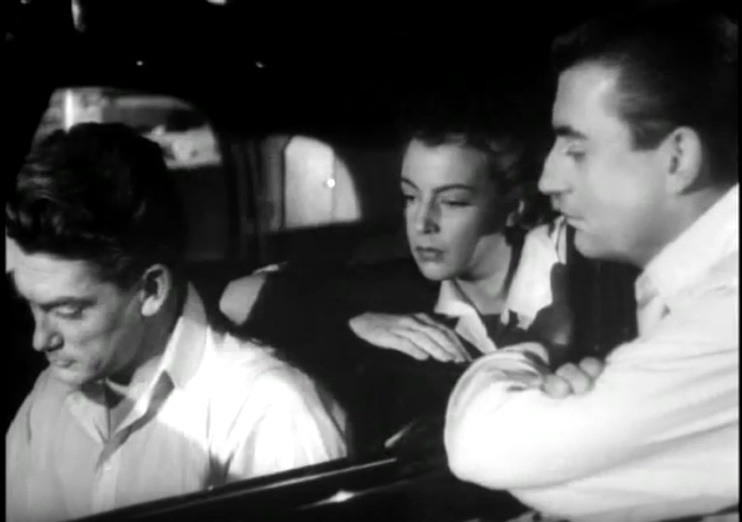zellen - silben
(a dreaming machine)
An algorithmic composition for radio, which has been broadcast in several versions in various countries and languages. The piece has both a sound and a language layer, each controlled by a non-hierarchical algorithm built on nine interacting cells. The way these new cells interact is not so much copied from our brain as from our society, in that the cells oscillate between "stubbornness" and adaptation to the collective.
Like surreal dreams, the randomly generated sentences can serve as inspiration, as oracles that open new perspectives of thought. Dice machines for the names of God in Kabbalah and the random compositions of Cage (who worked with the I Ching) share the desire to escape one's own preconceptions.
recording from zellen-silben (a dreaming machine) Radio Art Zone 2022
voices on the radio

Scene from Orphé, 1949 by Jean Cocteau
A young man is sitting in a car listening to the radio. The car is not driving; it is parked in a garage. The young man listens feverishly to the sometimes absurd and sometimes poetic sentences and writes them down. It is Orpheus, the poet. The radio voice comes from another world. Unaffected, it oracles to itself. My memory of the 1949 film Orpheé by Jean Cocteau is vague, but this radio appealed to me and has become a silent placeholder for what I imagine radio art to be. Here, the radio is not a transmitting medium, but becomes an acting subject itself. There is no face behind it, no person - the voice falls together with the device. The whole balances on the membrane to another world.

In contrast to the efforts of "artificial intelligence", which tries to create meaningful statements with machines, zellen-silben (a dreaming machine) strives for the opposite: to productively disrupt our mental imprints.
zellen-silben (a dreaming machine) is supported by pro helvetia, swiss arts council and Caroline Döhmer, Zentrum für Luxenburgische Sprache.